Vitamins For Gray Hair: 10 Nutrients To Prevent Graying
Combat premature hair graying at its roots by addressing any vitamin deficiencies.
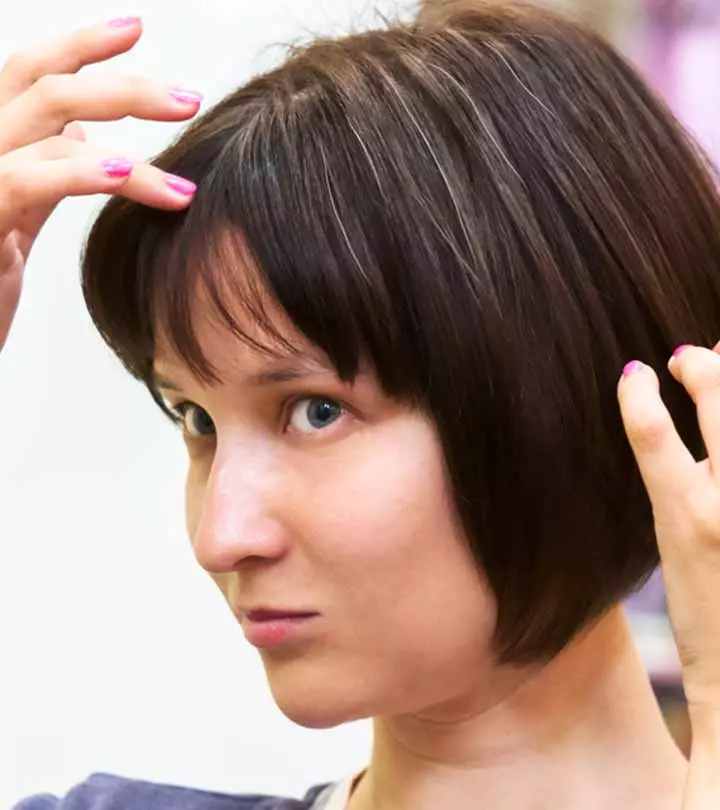
Image: Shutterstock
If you are planning to use vitamin supplements to reverse gray hair, take a moment and go through this article first. If you believe vitamins reverse gray hair, we are sorry to burst your bubble. Even though vitamins are widely used in the world of health and beauty for their numerous benefits, vitamin supplements cannot reverse graying. However, they can prevent premature graying due to pollution, food habits, stress, etc.
This article explains how you can stop premature graying and what supplements you can take for it. Scroll down! Do note that the insights given here provide general information on gray hair and how vitamins may help with gray hair. Results may vary and a reversal is not guaranteed for all. Further, consult a dermatologist before trying any new treatment or supplement. That said, scroll down below to start your gray hair reversal journey!
In This Article
What Causes The Hair To Turn Gray?
Krysta Biancone, a hairstylist, says, “Gray hair can be caused by a variety of hormonal imbalances or deficiencies, genetic factors, as well as stress and depression. However, there is no definitive answer as to whether or not these factors can definitively cause gray hair. The best way to determine the cause of gray hair would be to consult with a physician or hair professional.”
The hair follicles contain melanin which is responsible for hair pigment. With age, the hair can lose melanin, turning the strands silver or white. While this is a common sign of aging, if you notice gray hair in your early 20s and 30s, here are the possible causes.
1. Vitamin Deficiencies
Vitamin deficiencies can affect hair pigmentation and cause premature graying. The lack of trace elements like vitamins B12, D3, E, copper, iron, zinc, and biotin can contribute to premature graying (1), (2). A study found low serum ferritini A blood protein that stores iron and releases it in a controlled manner to help supply oxygen. , vitamin B12, and HDL-C (good cholesterol) levels to cause premature graying in individuals under 25 years of age (3).

 Did You Know?
Did You Know?2. Genetics
You might blame your unruly teens or stressful job for your gray hair. But gray hair can be an inherited trait. Genetics can influence the hair follicle stem cells and melanocytes and cause premature graying (2).
On similar lines another study revealed that 14% of survey respondents were diagnosed with premature hair greying before the age of 30. Further, 50% of the survey participants experienced greying hair at 50. This helps to establish a strong link between genetics and the greying of mane.
You are likely to have gray hair at an early age if your parents or grandparents had premature graying. The gene IRF4 (interferon regulatory factor 4) plays a key role in hair color. It helps regulate melanin production and is also responsible for gray hair (4).
3. Medical Conditions
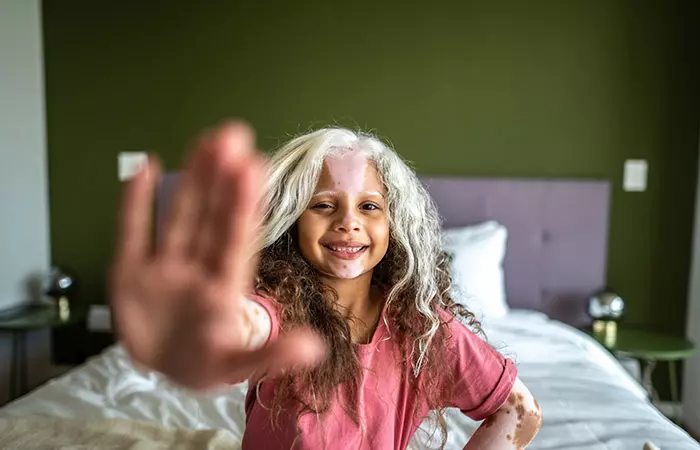
Certain medical conditions likevitiligoi A chronic autoimmune condition that causes patches of skin, hair, and the inside of the mouth to lose color. directly alter human hair follicle functions and cause graying. Thyroid dysfunction is linked with hair abnormalities. It affects the hair follicle cycle and pigmentation (5).
Alopecia areata, an autoimmune disease, causes hair loss and poliosis (depigmentation of hair). A case study found that poliosis could be caused by autoimmune conditions, infections, genetic syndromes, cutaneous lesionsi A medical condition defined by multiple bumps, patches, ulcers, or sore skin on the body, scalp, and nails. , trauma, and medication usage (6).
4. Stress
Acute stress can turn the hair gray. A mice study revealed that pain (physiological stress) and psychological stress could cause melanocyte loss in the stem cells and cause graying.
The researchers also found that under stress, the sympathetic nervous system releases noradrenalinei An organic chemical produced by adrenal glands in the body that functions as a hormone and a neurotransmitter. and activates the stem cells that change to melanocytes. These melanocytes migrate away from the hair follicles, turning the hair gray and white (7).
 Quick Tip
Quick Tip5. Smoking
Smoking is injurious not only to your physical health but also to your hair health. Smoking reduces the blood flow to hair follicles, and the toxins in cigarettes can affect them, causing early graying. Compared to non-smokers, smokers have double the chances of premature graying before hitting their 30s. A study examined the link between premature hair graying (PHG) and smoking in 207 people. 50.2% had PHG, and smokers were more likely to have gray hair before 30 (40.2% vs. 24.7% in non-smokers). Smokers also experienced earlier graying on average. The results suggest that smokers are 2.5 times more likely to develop PHG (8), (9).
6. Chemical Hair Dyes And Products
Do chemical hair dyes only hide your grays? Not really! Excessive use of chemical hair dyes can cause premature graying. Chemical hair dyes and harsh hair care products like shampoos contain chemicals that may affect the melanin levels in the strands. Prolonged exposure to chemicals like hydrogen peroxide may fade the hair color and cause graying. However, there is no scientific evidence to support this claim.
7. Pollution And UV Exposure

Excessive UV ray exposure and environmental factors like pollution may cause graying. Pollutants in the air generate free radicals that damage melanin in hair, speeding up hair graying (10).
You cannot control hair graying if it is in your genes. However, you can control the other extrinsic factors to minimize graying. It is impossible to reverse graying in strands that have already turned gray. But adding the right nutrients to your diet may preserve the existing color pigments and slow down the graying process. While some studies suggest that vitamins and supplements may reduce premature graying, results vary between individuals. More research is needed to support the potential of vitamins in reversing gray hair, as factors like genetics and overall health also play a role.
Key Takeaways
- Vitamin deficiencies, genetics, medical conditions, stress, smoking, chemical dyes, pollution, and UV rays can cause hair to become gray.
- Vitamins D, B12, B9, B5, and minerals like iron, calcium, and zinc can help reverse gray hair.
- Vitamin supplements can also prevent premature hair graying.
Vitamins For Gray Hair Reversal
Vitamins are convenient natural remedies for overall health maintenance. Enrich your diet with the following vitamins and nutrients to prevent premature graying:
- Vitamin D
Vitamin D is essential not only for bone health but also for hair health. Studies found vitamin D deficiency as one of the reasons for premature graying (11). Vitamin D affects melanin production in the hair follicles. Hence, consume food items like eggs, mushrooms, fatty fish, meat, and dairy products to combat vitamin D deficiency. You may also take vitamin D supplements. Additionally, spending time in the sun can also give you a healthy vitamin D boost.
- Vitamin B12

Vitamin B12 deficiency is the most common cause of premature graying (12). Elevated homocysteinei An alpha-amino acid released in the blood when proteins are broken down. This can damage blood vessels and impact hair health. levels in the body generate hydrogen peroxide that bleaches the hair, turning it gray. Taking vitamin B12 supplements reduces homocysteine levels and prevents premature hair graying. Intake of foods rich in vitamin B12 like meat, eggs, milk, and fish can help in gray hair reversal. A daily dosage of 2.4 mcg is recommended for most adults (13).
- Folic Acid
Vitamin B9 or folate is often used to increase hair growth and plays a significant role in maintaining hair pigmentation
. Lack of folic acid in your diet causes gray hair and pigmentation changes in the nails and skin. Consume folic acid-rich foods like kale, beans, green peas, leafy greens, citrus fruits, eggs, and poultry. The daily recommended dietary intake of folic acid for adults is 400 mcg (14).
- Vitamin B5
Anecdotal evidence suggests that vitamin B5 or pantothenic acid can prevent premature hair graying. It is said to play a key role in melanin production and can restore your natural hair color. Combining it with other vitamins may give better results. A study tested calcium pantothenate (vitamin B5), a B-complex supplement, and vitamin E on 39 girls with premature gray hair. They combined the supplements with plucking gray hairs and tracking regrowth over 3–5 months. Results showed that not all plucked gray hairs grew back gray, and in some cases, the total number of gray hairs decreased significantly over three years (15). You can get vitamin B5 from food sources, such as leafy greens, mushrooms, yogurt, whole grains, eggs, beans, fish, liver, and beef.
- Iron

Low iron levels in the body can lead to hair thinning and premature graying (16). To minimize the deficiency, consume foods like kale, eggs, spinach, red peppers, and peach. Also, foods that are rich in vitamin C help absorb more iron.
- Calcium
Calcium is a key mineral for maintaining your bone strength and hair color. Intake of foods rich in calcium, such as leafy greens, kale, milk, fish, walnuts, cabbage, and fortified cereals, may prevent premature graying (17).
- Zinc
Zinc may influence melanin production and cause premature graying (2). Consuming meat, beans, whole grains, pumpkin seeds, red meat, and fish may help deal with zinc deficiency and prevent gray hair.
If you are not getting enough vitamins through your diet, consult a doctor and consider taking anti-aging supplements to prevent graying. You may take supplements for the vitamins mentioned above or opt for the following.
Supplements For Gray Hair Reversal
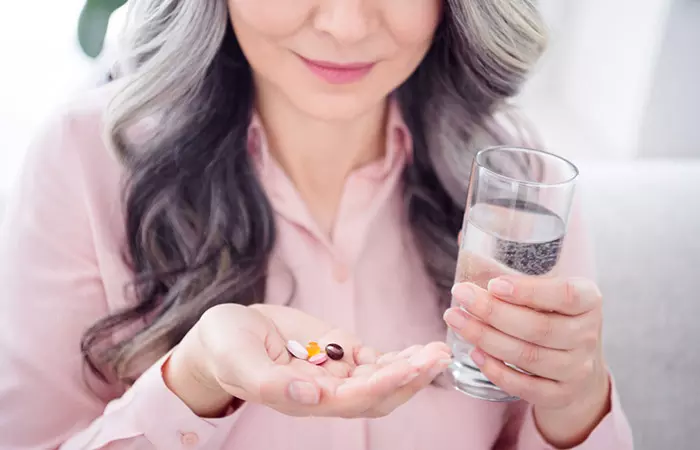
- Vitamin B6: The deficiency of vitamin B6 is more prominent among people who do not eat meat. Oral vitamin B6 supplements may promote melanin development in the hair (18). A daily dietary intake of 1.3 mg vitamin B6 is recommended for adults (19).
- Biotin: You may take biotin supplements to prevent premature graying (2). The recommended daily intake of biotin is 30 mcg for adults (20)
- Copper: This antioxidant is a key component of melanin, and copper deficiency causes premature graying (2).
These are the essential vitamins and minerals that may help reverse gray hair. Always make sure you follow the recommended quantity for consuming the vitamins as excess consumption might cause negative effects on health, including (21):
- Increased fat storage and obesity
- Insulin resistance and higher risk of type 2 diabetes
- Disruption of fat metabolism and excessive fat production
- Fat accumulation in the liver, leading to non-alcoholic fatty liver disease (NAFLD)
- Genetic changes that may contribute to metabolic disorders
- Neurotransmitter imbalances affecting mood and cognition
Therefore, it is important to consult a healthcare professional before starting any new supplements to avoid potential health risks.
It is always best to take certain precautions to possibly help prevent premature hair graying. Read on to know more.
How Else Can You Prevent Gray Hair?
Here are a few tips that may help prevent premature hair graying:
- Consume more antioxidant-rich foods to prevent oxidative stress (22). Fresh fruits and vegetables, fish, olive oil, and green tea are some good options.
- Avoid smoking, as it can increase the chances of premature hair graying.
- Avoid or limit the use of harsh hair care products. Switch to products with natural ingredients.
- Massage your scalp or use hair masks with ingredients like amla that help improve the hair color.
- Cover your head with a scarf or hat whenever you step out to protect your hair from the sun and pollution.
A lifestyle blogger shares her premature gray hair story on one of her posts. She also believes that vitamin supplements can go a long way in managing the appearance of graying hair. “Going by my lifestyle and my history, I shouldn’t be surprised by the amount of grey that has appeared. Other than the stress, I also suffer from various vitamin and mineral deficiencies. I began to to take my supplements seriously, only to lose steam in a month and after missing a few consecutive doses, all my determination went kaput. Note to self – Restart supplements (i),” she says.
Infographic: Top Nutrients For Gray Hair Reversal
Nutrient deficiencies are one of the major reasons for gray hair. There are certain vitamins and minerals that are essential for your hair’s health. Since we have written a detailed article about the different nutrients needed to prevent gray hair, we have also prepared an easy chart to help you out.
Check out the infographic to learn which foods help you improve a nutrient deficiency.
Some thing wrong with infographic shortcode. please verify shortcode syntax
Exposure to pollutants, vitamin deficiencies, genetics, age, stress, and smoking are some factors that may cause your hair to turn gray. Most often, people tend to resort to increasing their vitamin intake to treat premature graying, but do you think vitamins reverse gray hair? While vitamins cannot reverse gray hair, they can slow down the process. Eating a diet rich in vitamins D, B5, and B12, iron, and calcium can prevent your existing hair from turning gray. If you are not receiving enough vitamins from your diet, consult your doctor. They may prescribe vitamin supplements such as vitamin B6, biotin, and copper to promote melanin production, prevent premature graying, and aid in healthy hair growth.
Frequently Asked Questions
Does plucking increase the number of gray hair?
Krysta says, “No, plucking does not increase gray hair. Vitamin D3, magnesium, and other holistic treatments may help reverse the appearance of gray hair, but they are not always effective.”
Does Ashwagandha reverse gray hair?
According to anecdotal evidence, Ashwagandha may promote the formation of melanin. Melanin is the pigment that gives hair its dark color, so restoring lost melanin may prevent premature graying of hair (23).
Can omega 3 reverse gray hair?
According to anecdotal data, omega 3 may help prevent gray hair. Eat a balanced diet that is high in omega-3 fatty acids. Additionally, you can use oils high in omega 3, such as emu oil. Massaging this oil onto your scalp may aid in rejuvenating the hair follicles and pigment-producing cells called melanocytes. However, there is no scientific evidence to support this claim.
Is there a connection between copper and folate deficiency and gray hair?
Yes, there is a connection between copper and folate and graying hair. A deficiency in either of these can affect hair color and can lead to gray hair.
At what age hair starts graying?
Hair typically starts to turn gray as people enter their 30s or 40s. The exact age at which hair starts to gray can vary widely between individuals and on factors such as genetics, ethnicity, and lifestyle.
How can I remove gray hair naturally?
There is no known natural way to completely remove gray hair, as the graying process is largely determined by genetics and is a natural part of aging. However, you can use henna or black tea to temporarily mask or reduce the appearance of gray hair.
Illustration: Gray Hair Reversal: Vitamins And Supplements
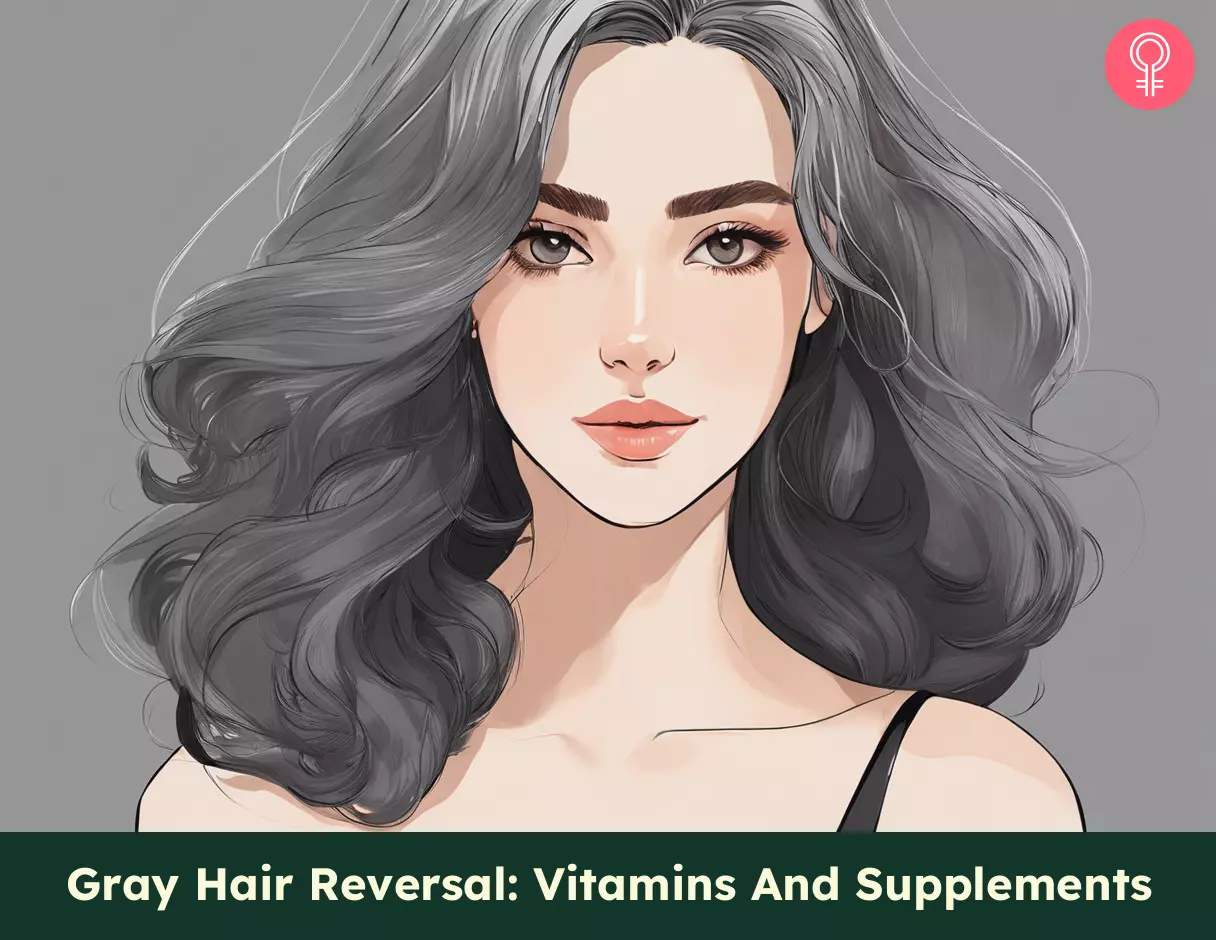
Image: Stable Diffusion/StyleCraze Design Team
Discover the top 9 nutrients that can help reverse grey hair and restore your natural hair color! Learn how to nourish your hair from the inside out with the help of this video.
Personal Experience: Source
StyleCraze's articles are interwoven with authentic personal narratives that provide depth and resonance to our content. Below are the sources of the personal accounts referenced in this article.
i. My very own 50 shades of greyhttps://pepperedthoughts.wordpress.com/2015/08/26/my-very-own-50-shades-of-grey/
References
Articles on StyleCraze are backed by verified information from peer-reviewed and academic research papers, reputed organizations, research institutions, and medical associations to ensure accuracy and relevance. Read our editorial policy to learn more.
- The melanocyte lineage in development and disease
https://www.ncbi.nlm.nih.gov/pmc/articles/PMC4325379/ - Premature Graying of Hair: Review with Updates
https://www.ncbi.nlm.nih.gov/pmc/articles/PMC6290285/ - Factors Associated with Premature Hair Graying in a Young Indian Population
https://www.ncbi.nlm.nih.gov/pmc/articles/PMC4830165/ - A direct link between MITF, innate immunity, and hair graying
https://www.ncbi.nlm.nih.gov/pmc/articles/PMC5933715/ - Thyroid hormones directly alter human hair follicle functions: anagen prolongation and stimulation of both hair matrix keratinocyte proliferation and hair pigmentation
https://pubmed.ncbi.nlm.nih.gov/18728176/ - Alopecia areata with white hair regrowth: case report and review of poliosis
https://pubmed.ncbi.nlm.nih.gov/25244170/ - How stress causes gray hair
https://www.nih.gov/news-events/nih-research-matters/how-stress-causes-gray-hair - Smokers hair: Does smoking cause premature hair graying?
https://www.ncbi.nlm.nih.gov/pmc/articles/PMC3673399/ - Association of premature hair graying with family history, smoking, and obesity: a cross-sectional study
https://pubmed.ncbi.nlm.nih.gov/25484268/ - Pharmacologic interventions in aging hair
https://www.ncbi.nlm.nih.gov/pmc/articles/PMC2695167/ - Epidemiological and Investigative Study of Premature Graying of Hair in Higher Secondary and Pre-University School Children
https://www.ncbi.nlm.nih.gov/pmc/articles/PMC3746220/ - Demographic Characteristics and Association of Serum Vitamin B12, Ferritin and Thyroid Function with Premature Canities in Indian Patients from an Urban Skin Clinic of North India: A Retrospective Analysis of 71 Cases
https://www.ncbi.nlm.nih.gov/pmc/articles/PMC5448266/ - Vitamin B12
https://ods.od.nih.gov/factsheets/VitaminB12-Consumer/ - Folate
https://ods.od.nih.gov/factsheets/Folate-HealthProfessional/ - Effect of Grey Hair Evulsion on the Response to Calcium Pantothenate in Premature Grey Hairs
https://pubmed.ncbi.nlm.nih.gov/28150658/ - Factors Associated with Premature Hair Graying in a Young Indian Population
https://www.ncbi.nlm.nih.gov/pmc/articles/PMC4830165/ - Relationship between Trace Elements and Premature Hair Graying
https://www.ncbi.nlm.nih.gov/pmc/articles/PMC6369637/ - Pyridoxine-Dependent Hair Pigmentation in Association With Homocystinuria The Induction of Melanotrichia
https://jamanetwork.com/journals/jamadermatology/article-abstract/532789 - Vitamin B6
https://ods.od.nih.gov/factsheets/VitaminB6-Consumer/ - Biotin
https://ods.od.nih.gov/factsheets/Biotin-HealthProfessional/ - Excess vitamin intake: An unrecognized risk factor for obesity
https://www.wjgnet.com/1948-9358/full/v5/i1/1.htm - Oxidative stress in ageing of hair
https://pubmed.ncbi.nlm.nih.gov/20805969/ - Premature Graying of Hair: Review with Updates
https://www.ncbi.nlm.nih.gov/pmc/articles/PMC6290285/
Read full bio of Dr. Shruti Chavan
- Krysta Biancone is a hair stylist with over 13 years of experience in blonde highlights, hair extensions, and blonde coloring. She aims to make every client feel their absolute best.
 Krysta Biancone is a hair stylist with over 13 years of experience in blonde highlights, hair extensions, and blonde coloring. She aims to make every client feel their absolute best.
Krysta Biancone is a hair stylist with over 13 years of experience in blonde highlights, hair extensions, and blonde coloring. She aims to make every client feel their absolute best.
Read full bio of Arshiya Syeda
Read full bio of Ramona Sinha
Read full bio of Medha Deb





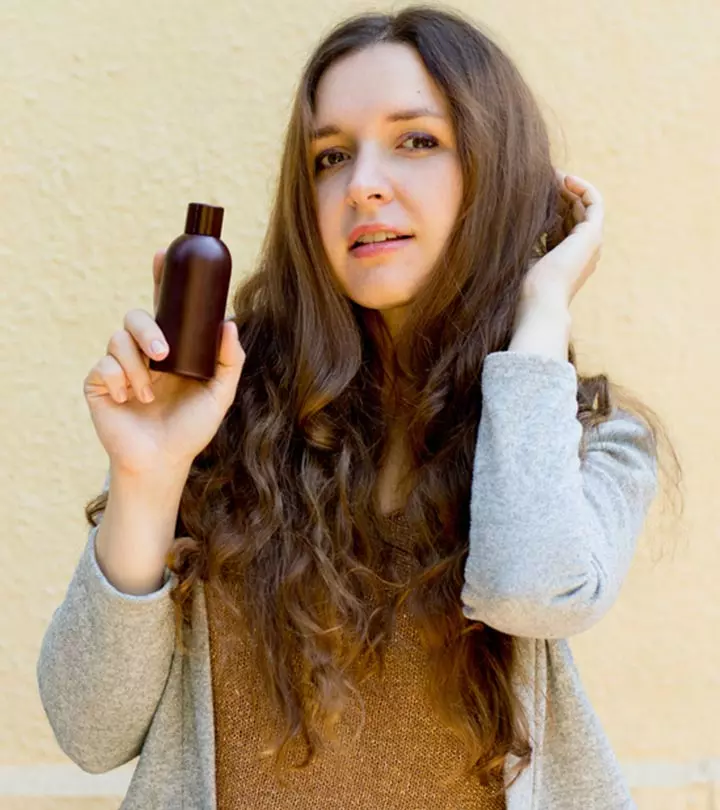
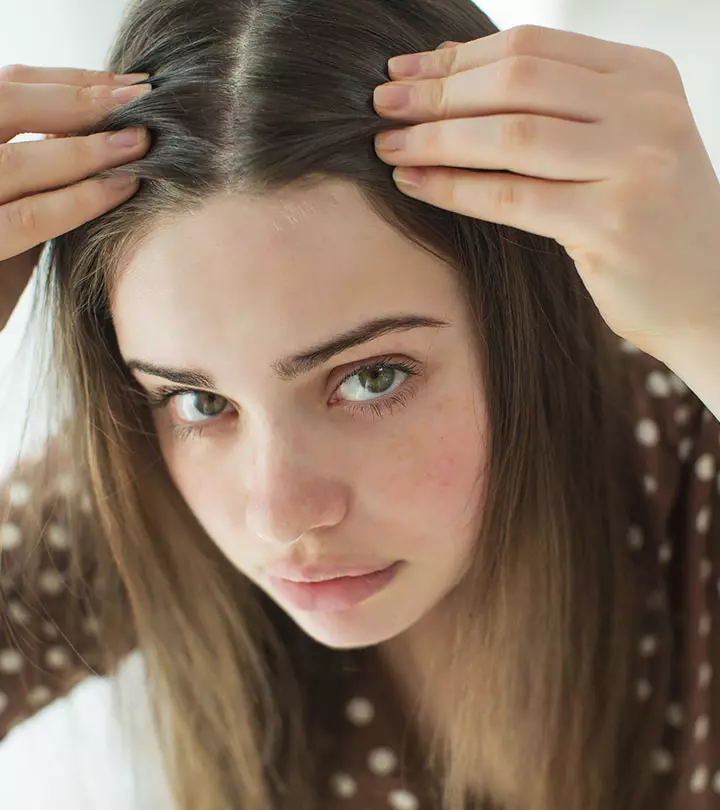
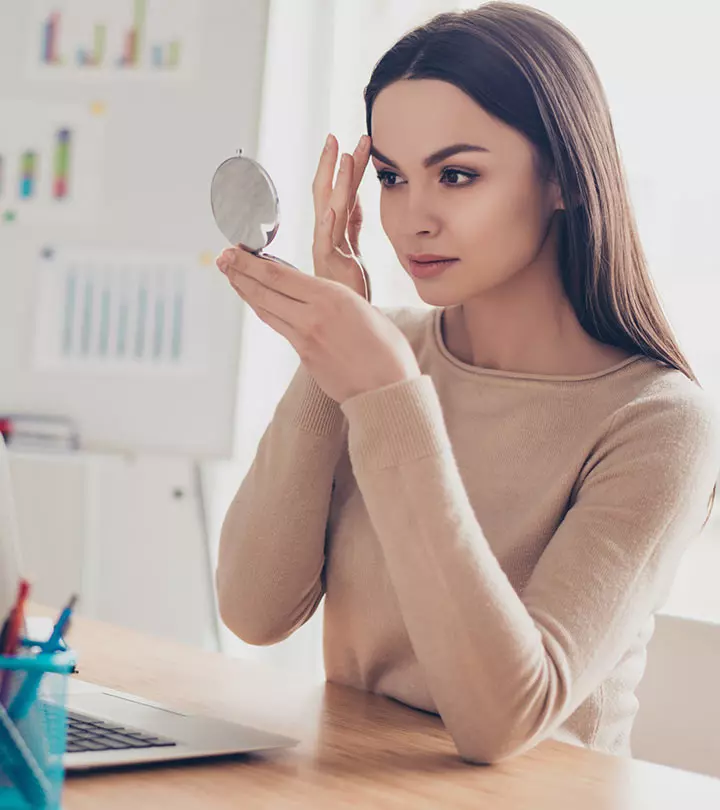

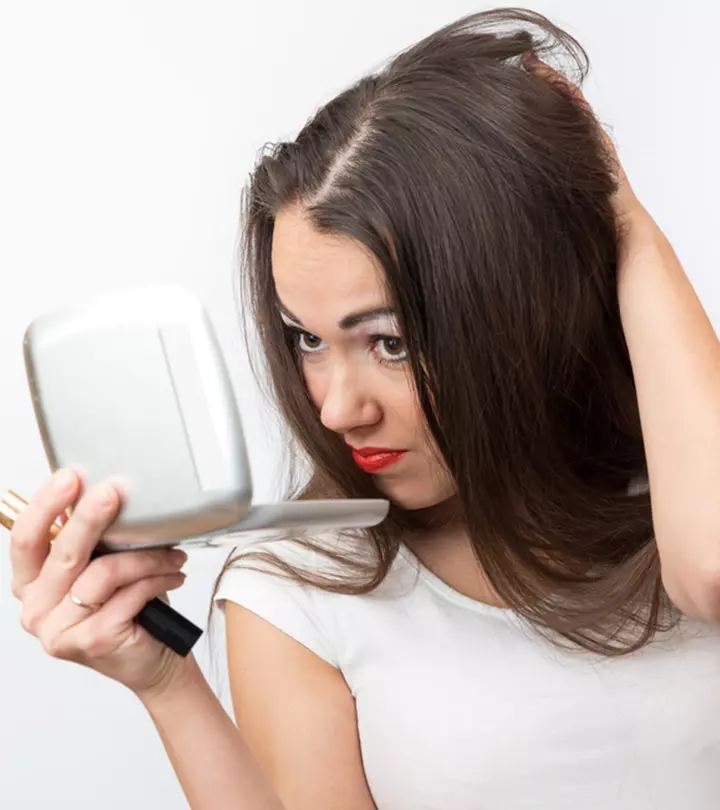


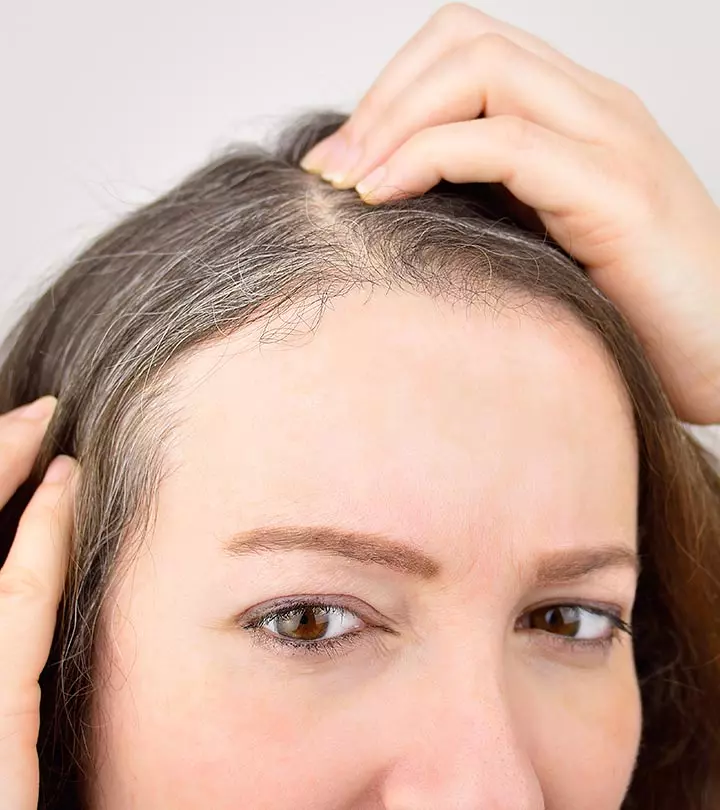
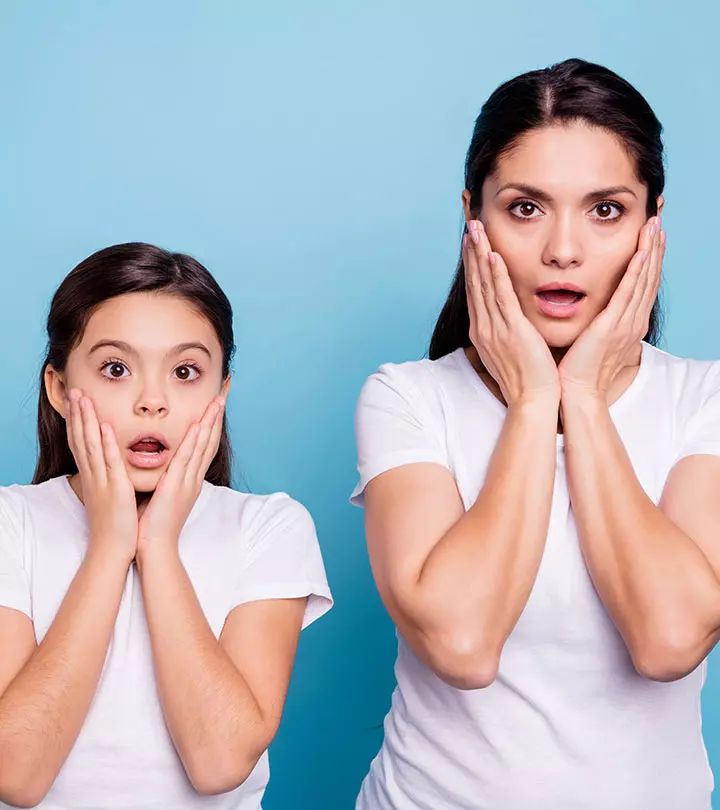

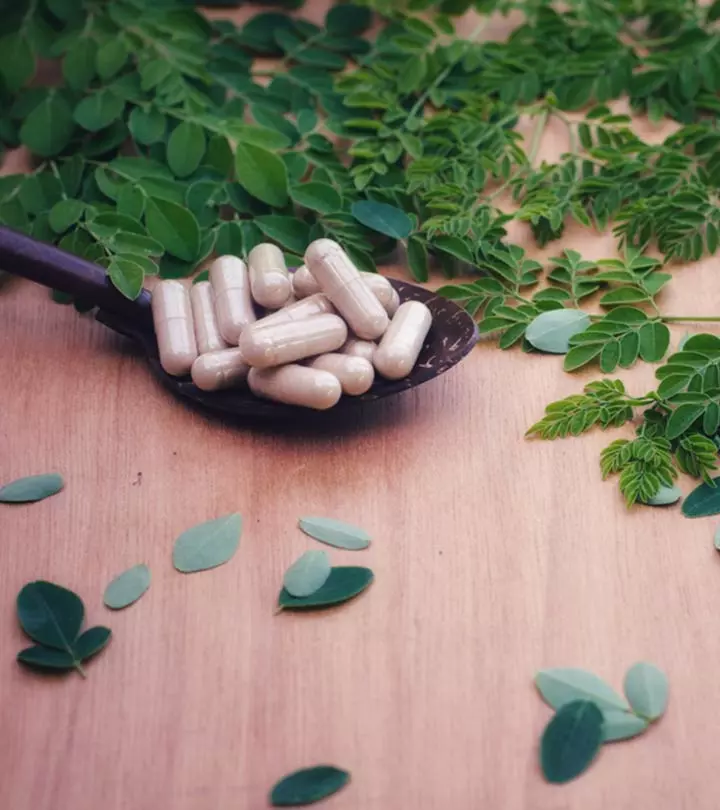


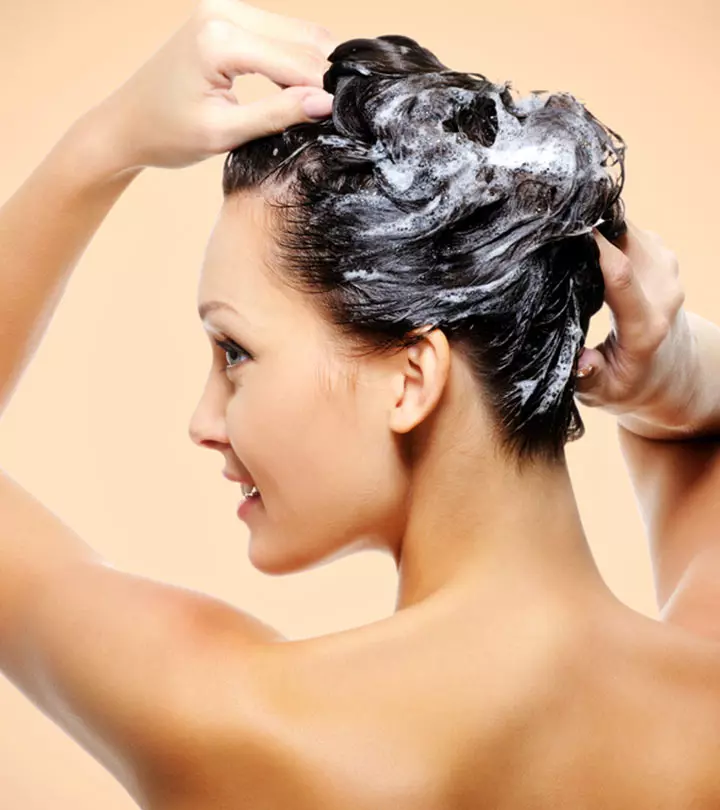
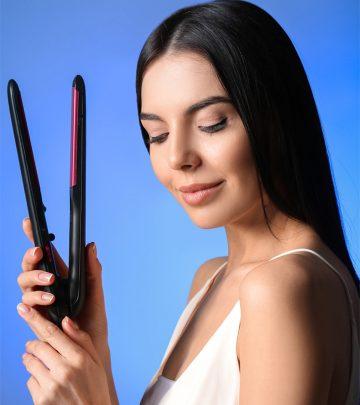

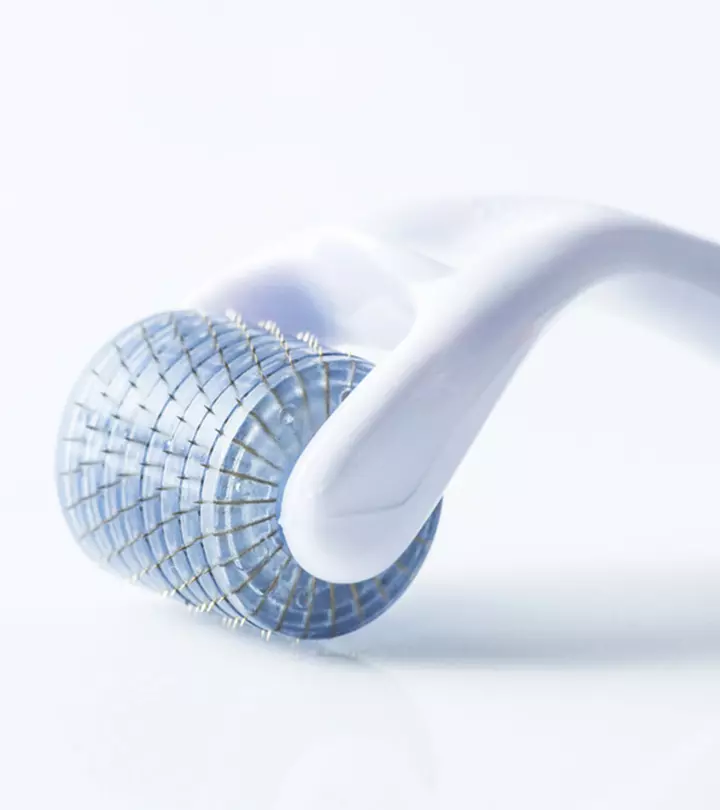
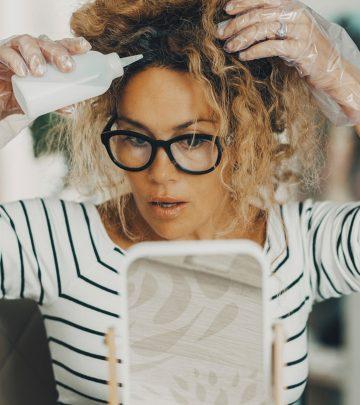
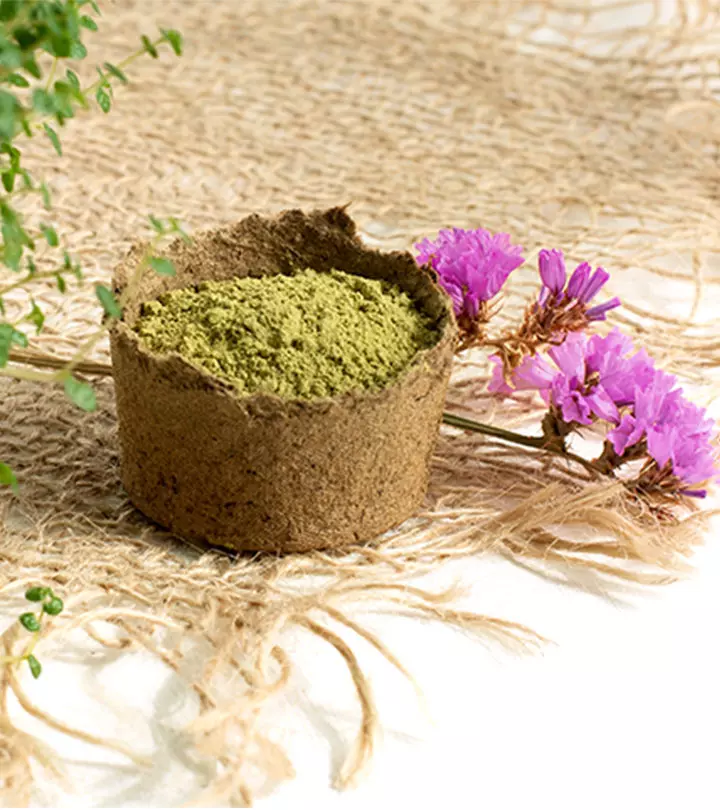
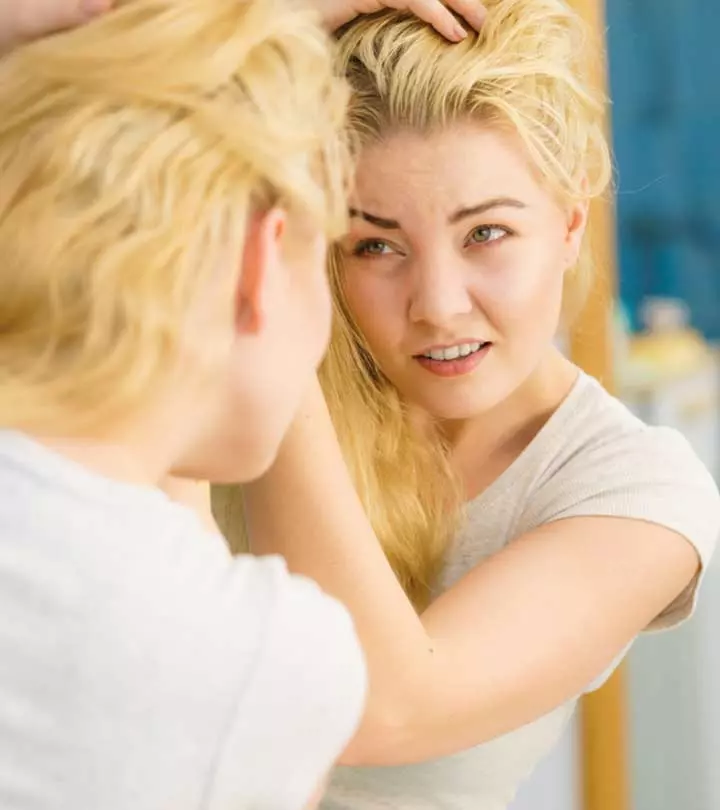
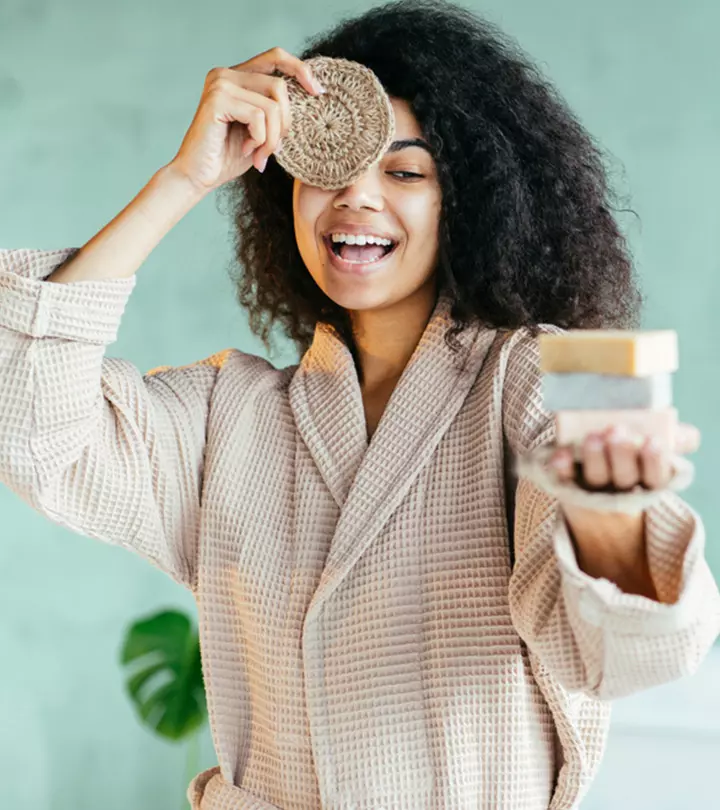

Community Experiences
Join the conversation and become a part of our empowering community! Share your stories, experiences, and insights to connect with other beauty, lifestyle, and health enthusiasts.